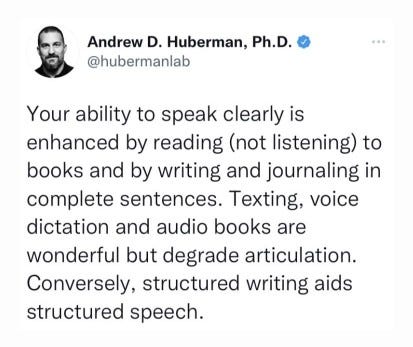How to start and finish a book?
The internet is filled with list of books you should read, my Youtube feeds frequently shows titles like, “10 books recommended by Bill Gates in 2022” and while we are all convinced how essential reading is for us, we often struggle with finishing a book once we start it.
If you are reading this article I know you are in the same boat and instead of writing more about this struggle and lengthening the intro, I’ll cut directly to the chase and give you a list of techniques that I have found helpful.
The subtle art of picking a book
Doing the first step right ultimately decides whether you’ll read a book or not. You would want to pick a book that is challenging enough so you learn something new and not too challenging so it feels like you are banging your head against a wall. This advice is specifically for people who have struggled to finish a book yet. It could be because you have picked up something that is plain boring(to you) or too complex to digest.
To fall in love with reading or to atleast get started on building a reading habit pick a simple book from a genre you would like. Reading the back cover maybe helpful in deciding that or if a book is recommended by a friend with similar interests, that’s a good place to start.
Patience — your one true friend.
This is the biggest and the most boring sounding advice that I can give to someone when it comes to reading. In the world were our attention spans are getting shorter and social media is engaging people with 90 second reels, it gets harder for people to focus on things for more than 10 minutes(or maybe less). It is also hard for writers to write about something interesting at length, so please expect the books you are reading to get boring once in a while. The only way to tread these difficult and slow waters is through patience.
If you find yourself falling asleep while reading a book, it could be because you are too tired. In that case please don’t continue. Just leave the book and go to sleep. People recommend reading before you go to sleep, according to me, it is a good way to sleep but not a good way to read, specially if you are too tired by the time you reach your bed.
Also, If you realize you are reading something totally irrelevant or something you already know, skimming through it is a good idea or just skipping that topic and moving forward is better than abandoning the book altogether.
Making reading a habit
Setting goals is always a good idea to form habits. For reading — at the start of a week, you can set a (realistic) goal of completing 50, 40 or 30 pages, whichever number you are comfortable with. At the end of the week check whether you were able to achieve your goal and set a new goal for the upcoming week. Doing this will ensure that you don’t get caught up in the hustle of everyday life and live with the guilt of not getting the time to read.
As long as you meet your goals, it will slowly build up a consistent reading habit. Instead of setting weekly goals, you can set daily goals too, whichever works more effectively for you.
Adapting with books
Not all books are written the same, nor should be the way you read them. Non-fictions compared to fictions are more dense in information and should be tread slowly.
While I can read a fiction as fast as I can(depending on the writing style — classic fictions are read slower than contemporary fiction), and if the plot gets interesting I might read a lot in one sitting.
I won’t use the same technique with non-fictions. I tend to go slow to grasp the concepts better, also underline lines that I might revisit later. I avoid reading huge chunks at once, more than a chapter or two becasue it limits your ability to remember what you have read.
Adapting as per the content will help you save time while also getting the most out of the book. On this topic, I have a whole section dedicated next.
Getting the most out of the book you are reading
Since books are not (usually)meant to be read and forgotten, there should be a way to retain as much value from that book as possible. This is specially applicable for non-fictions. While underlining through what you find important and wiill revisit later is one way, you can also add side notes that can mention a contrary opinion, a question, an analogy.
One more step in getting the most out of your reading is writing a summary of key takeaways. I started this habit after I realized I can hardly come up with more than 5 sentences about a book that I read a year back. Having a written list of takeaways — of things that you found useful will surely help in the long term.
Also, writing will make you think about what you read and maybe question and validate the author’s opinions. According to the world renowned pyschologist Jordan Peterson, “The best way to teach people critical thinking is to teach them to write.”
Should I give up on a book if I don’t like it?
I have read around 100+ books and I have not enjoyed them the same. To give up or to continue has always been a dilemma, the answer to which(I have finally discovered) depends on what stage of boredom you are on while reading the book.
If the begginning is a bit slow or if suddenly the writing has become uninteresting, it is advisable to bear with the author. It is possible that there might be something of value later on that you’ll miss if you give up on the book now. Also, if you are halfway through the book and you haven’t found anything interesting, there is a good chance you won’t find it in the later half. In that case, by all means, pick a new one.
In the next section I am taking a tangent from the main theme of this article and trying to answer the eternal question of Audiobooks vs Paperbacks or rather listening vs reading.
Are audiobooks better?
There are a lot of arguments that support audiobooks over paperbacks. No physical space needed, can be listened to while doing passive work , no damage, good for the environment.
But reading compared to listening as an activity has a different effect on the mind.

If you are someone who hardly finds the time to read books, then please go with audiobooks, they’ll save you time, the main goal is to get started. But if you are able to make time to read a book, then I would surely suggest reading over listening.
The epilogue
Now, we are at the end of this article and I know most people who started reading this won’t make it till here. While that speaks for both — my ability as a writer and their attention span, but if you have made it till here consider it as the first step in your quest to being a consistent reader.




0 Comments